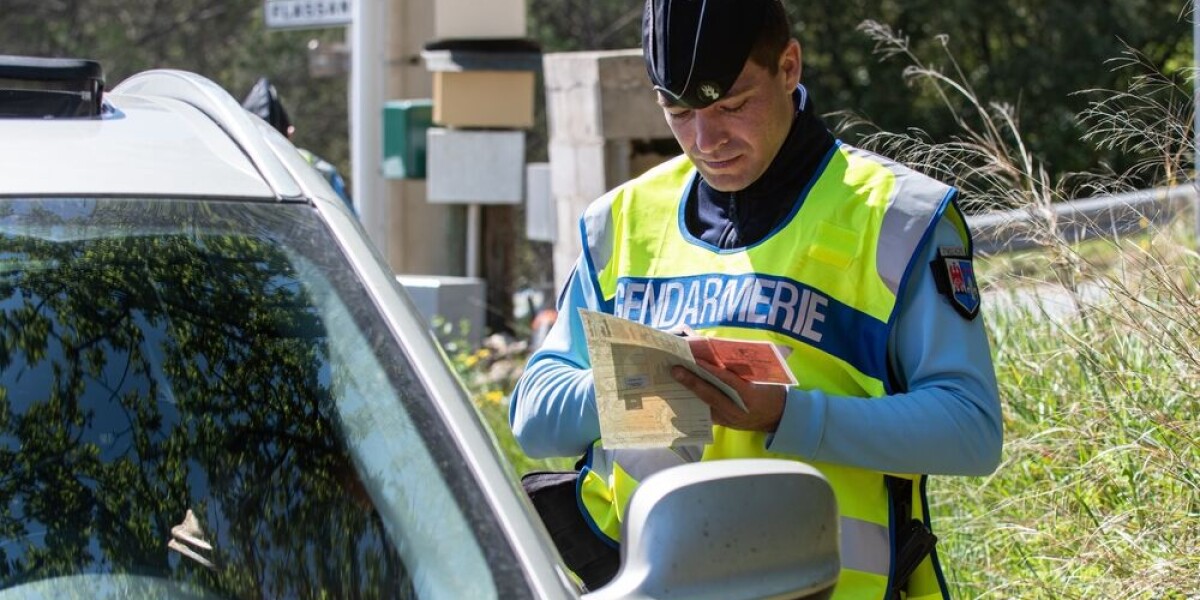
Why police checks on drivers in france are increasing
- Select a language for the TTS:
- UK English Female
- UK English Male
- US English Female
- US English Male
- Australian Female
- Australian Male
- Language selected: (auto detect) - EN
Play all audios:

MANY DRIVERS HAVE HAD THEIR LICENCES SUSPENDED IN RECENT MONTHS Police are increasing the number of checks they carry out on drivers in several regions of France after a rise in fatal
accidents linked to alcohol or drugs. As a result hundreds of drivers have had their licences suspended in recent months. Areas particularly targeted include Dordogne in the south-west where
over 600 licences have been suspended since the start of 2025 - an increase of 17% on last year. It comes amid concern over the number of road deaths which rose nationally in 2024 to 3,431
(23 more than in 2023). No definitive national statistics have yet been released for 2025 but several departments report that the year is already proving particularly deadly. Thirteen fatal
accidents have been recorded in 2025 in Morbihan (Brittany) alone, for example, with four linked to alcohol or drug use, states the prefecture. In response, the department has stepped up
the number of police stops. As a result, 824 drivers had had their licences suspended in Morbihan since January 1, with 80% related to alcohol or drug use. In 46% of cases, drivers were over
the alcohol limit and in 36% they had used cannabis or cocaine. In many cases, they tested positive for both alcohol and drugs. By the end of April, Dordogne had seen 12 road deaths - up
from eight in the same period of 2024 - and 76 injuries, amounting to almost one person killed or injured every day. This prompted the prefect to issue a special departmental action plan to
empower police to perform more stops. As a result more than 600 drivers have had their licences suspended in recent months, a 17% increase on the same period in 2024. The authorities have
found that for the first time drug use has overtaken alcohol as the main reason for licence suspensions (note that unlike for alcohol, use of illegal drugs is not subject to a tolerance
threshold). In Indre-et-Loire (Centre-Val de Loire) a string of serious crashes around the May 1 bank holiday weekend led to a similar departmental action plan to increase police checks,
especially on long, public holiday weekends. Police are also monitoring traffic around large local events such as the Foire de Tours, which often involve late-night drinking. OTHER DRIVING
OFFENCES INCREASE Alongside local crackdowns national figures show a continued rise in driving penalties. This comes on top of the already historically high number of fines issued, which
hit a record 43 million in 2023 (latest data), according to the Agence Nationale de Traitement Automatisé des Infractions (ANTAI), the body that issues road fines in France. The increase is
largely due to the widespread use of electronic fines, more post-parking notices (FPS), and a growing number of more serious fixed-penalty offences (AFD). WHEN CAN YOUR DRIVING LICENCE BE
TAKEN AWAY IN FRANCE There are two key administrative measures that can prevent someone from driving in France: rétention and suspension of a licence. Rétention is an immediate safety
measure taken by police or gendarmes including in cases of: * suspected alcohol or drug use * refusal to undergo testing * speeding more than 40km/h over the road limit In these cases, an
officer physically retains the licence and gives the driver a document informing them that they are no longer allowed to drive. This measure can last up to 72 hours - or 120 if further
medical testing is needed. The vehicle may be immobilised, and the prefecture and prosecutor notified. Read more: How to contest a driving or speeding fine in France If the offence is
confirmed, the prefecture may then issue an administrative suspension, lasting from several months up to one year. No exceptions are made for those who need to drive for work as were
previously available under a medically authorised ‘permis blanc’ (this system was withdrawn in 2003). Driving during a retention period is a criminal offence, punishable by up to two years
in prison, a €4,500 fine, vehicle confiscation and a further three-year suspension. If the offence is not confirmed after tests, the licence is returned by post. Judicial decisions can
override an administrative one, if a court later imposes a longer suspension that becomes the official duration. HOW MANY POINTS CAN YOU LOSE – AND FOR WHAT? French driving licences are the
opposite to UK or US driving licences in that drivers lose points for committing infractions (as opposed to gaining them). New drivers start with six points, rising to 12 over three years if
no infractions are committed. A licence must have at least one point to remain valid. Points are deducted depending on the offence: * One point: speeding under 20km/h over the limit, or
crossing a solid white line * Two points: under 30km/h over, or overtaking dangerously * Three points: under 40km/h over, or tailgating * Four points: under 50km/h over, or failing to give
way * Five points: more than 50km/h over, or under the influence of alcohol or drugs Multiple offences at once can mean losing up to eight points. You can check your remaining points if
appropriate at Mes Points Permis. You recover one point every six months that you do not commit a driving infraction. After two years without a driving infraction you recover all your points
if your previous infractions were category 1,2 or 3 (ie. punishable by a one point deduction or a fine). You can also recover up to four points by participating in a stage de
sensibilisation à la sécurité routière.
